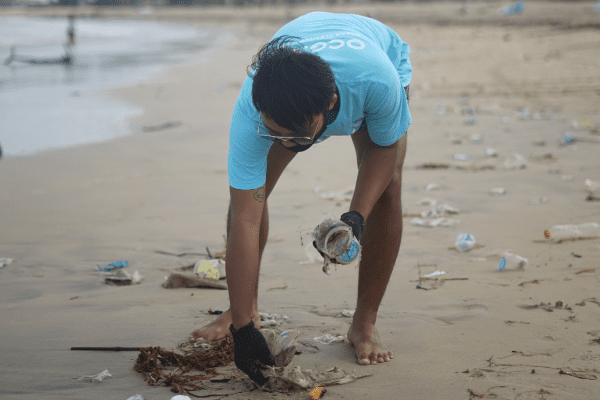
Voluntourism, the combination of travel and volunteering, is a growing trend among conscious travelers who want to make a positive impact on their journeys. By giving back to local communities, voluntourists can create a more meaningful and enriching travel experience. This type of travel allows individuals to immerse themselves in a foreign culture while contributing to a cause they are passionate about.
While voluntourism has many benefits, it is not without its criticisms. Some argue that voluntourism perpetuates the problematic idea of white saviorism, where minority communities are dependent on white individuals to be “rescued” or “saved.” Additionally, voluntourism programs can sometimes do more harm than good if they are not properly vetted or if the volunteers are not adequately trained. As such, it is important for voluntourists to approach this type of travel responsibly and with a critical eye.
What is Voluntourism?
Voluntourism is a type of tourism that combines travel with volunteering. It is a way for travelers to give back to local communities while exploring new places and cultures. Voluntourism can take many forms, from working on conservation projects to teaching English to children in underprivileged areas.
Voluntourism is often associated with charity or non-profit organizations that arrange trips for volunteers. These organizations work with local communities to identify areas where help is needed and then organize volunteers to work on projects that address those needs.
One of the benefits of voluntourism is that it can provide a more meaningful travel experience. Rather than simply sightseeing, voluntourists can become more immersed in the local culture and gain a deeper understanding of the challenges faced by the community. Voluntourism can also be a way to make a positive impact on the places visited, by contributing to conservation efforts, supporting local businesses, or improving access to education.
However, it is important to approach voluntourism with caution. Some organizations may not have the best interests of the local community at heart, and may be more focused on profit or providing a feel-good experience for volunteers. It is important to research organizations carefully before signing up for a voluntourism trip, and to ensure that the work being done is actually beneficial to the community.
Overall, voluntourism can be a rewarding way to travel and give back to local communities. By working with reputable organizations and being mindful of the impact of their actions, voluntourists can make a positive difference in the world while experiencing new cultures and making lasting memories.
Benefits of Voluntourism
Voluntourism offers a unique opportunity to combine travel and giving back to local communities. Here are some of the benefits of voluntourism:
1. Meaningful and Educational Experience
Voluntourism offers a meaningful and educational experience that allows you to learn about different cultures, customs, and ways of life. You get to work alongside locals and gain a deeper understanding of their way of life. This experience can be life-changing and can help you develop a new perspective on the world.
2. Skill Development
Voluntourism offers an opportunity to develop new skills or improve existing ones. You can learn new skills such as construction, teaching, healthcare, and more, which can be beneficial for personal and professional development. This can also be a great way to gain experience in a particular field or industry.
3. Positive Impact on Local Communities
Voluntourism can have a positive impact on local communities by supporting community development projects. By volunteering your time and skills, you can help build schools, homes, water wells, and other infrastructure that can improve the quality of life for locals. You can also support local businesses and contribute to the local economy.
4. Sustainable Projects
Voluntourism projects are often designed to be sustainable, which means they are developed with long-term benefits in mind. Sustainable projects can help create a lasting impact on local communities and ensure that the benefits of voluntourism are felt for years to come.
5. Personal Health Benefits
Voluntourism can also have personal health benefits. Studies have shown that volunteering can improve mental health, reduce stress, and increase happiness. Voluntourism can also be a great way to stay active and engage in physical activities such as hiking, building, and farming.
Overall, voluntourism offers a unique opportunity to make a positive impact on local communities while gaining a meaningful and educational experience. By volunteering your time and skills, you can support sustainable projects, develop new skills, and contribute to community development.
Choosing a Reputable Organization
When it comes to voluntourism, choosing a reputable organization is crucial to ensure that your efforts are making a positive impact on the local community. Here are some tips to help you choose a reputable organization:
- Research: Do your research and find organizations that have a proven track record of making a positive impact in the community. Look for reviews and testimonials from previous volunteers to get an idea of the organization’s reputation.
- Transparency: A reputable organization should be transparent about their mission, goals, and how they use their resources. They should be open to answering any questions you may have about their operations.
- Respect for local culture and traditions: A reputable organization should respect the local customs and traditions of the community they work with. They should work with the community to identify their needs and priorities and develop projects that are sustainable and culturally appropriate.
- Environmental conservation: A reputable organization should be committed to environmental conservation and should work to minimize their impact on the environment. They should also involve the community in environmental conservation efforts.
- Giving back to the local community: A reputable organization should prioritize giving back to the local community and should work to empower the community to become self-sufficient.
- School and venture projects: If you are interested in volunteering in schools or on ventures, make sure that the organization has a clear plan for how they will support the community in the long term.
Overall, choosing a reputable organization is key to ensuring that your voluntourism efforts are making a positive impact on the local community. By doing your research and choosing an organization that is transparent, respectful, and committed to giving back, you can be sure that your efforts are making a meaningful difference.
Challenges of Voluntourism
While voluntourism can be a rewarding and enriching experience, it is not without its challenges. Here are some of the common challenges that voluntourists face:
Challenging Work
Voluntourism often involves challenging work that requires physical labor and expertise. For example, building houses, schools, or other infrastructure may require specialized skills that the volunteers may not have. This can make the work difficult and sometimes even dangerous.
Ethical Concerns
Voluntourism can also raise ethical concerns, especially when it involves working with vulnerable populations, such as orphanages or impoverished communities. There have been cases of exploitation and harm caused by voluntourists who lack the necessary training and experience to work with these communities.
Cultural Differences
Voluntourists may also face cultural differences that can make it challenging to connect with the local community. Language barriers, different ways of life, and customs can create misunderstandings and hinder the effectiveness of the volunteer work.
Time Commitment
Voluntourism programs can vary in length from a few days to several months. However, the time commitment required may not always be clear, and volunteers may find themselves committing more time than they had anticipated.
Responsible Travel
Voluntourists must also consider responsible travel practices. They should avoid contributing to the exploitation of local workers and ensure that their donations are going to reputable organizations. They should also be mindful of their impact on the environment and local communities.
Overall, voluntourism can be a rewarding and enriching experience, but it is important to approach it with a responsible and ethical mindset. To ensure a positive experience, volunteers should research the organization they are working with, understand the time commitment required, and be prepared for the challenges they may face.
Types of Voluntourism
Voluntourism offers a variety of opportunities to combine travel and giving back. Here are some of the most common types of voluntourism:
Volunteer Work
Volunteer work is the most popular type of voluntourism. It involves working with a local organization or non-profit to help with various projects, such as building homes, teaching children, or cleaning up the environment. Volunteer work can be a great way to make a difference in the community while also gaining valuable skills and experiences.
Teaching English
Teaching English is another popular type of voluntourism. Many countries around the world, especially in Asia and Africa, have a high demand for English teachers. Voluntourists can help teach English to children or adults, and in the process, learn about the local culture and customs.
Cultural Immersion
Cultural immersion voluntourism involves living with a local family or community and learning about their way of life. This type of voluntourism can be a great way to experience a new culture firsthand and gain a deeper understanding and appreciation of it.
Personal Growth
Personal growth voluntourism focuses on self-improvement and personal development. This type of voluntourism may involve activities such as yoga, meditation, or mindfulness training. It can be a great way to take a break from the stresses of everyday life and focus on personal growth and well-being.
Charity Work
Charity work voluntourism involves working with a non-profit organization to help raise funds or awareness for a particular cause. This type of voluntourism can be a great way to make a difference in the world while also traveling and experiencing new cultures.
Accommodations and Tours
Many voluntourism organizations offer accommodations and tours as part of their packages. Accommodations may include homestays, hostels, or hotels. Tours may include sightseeing, cultural activities, or outdoor adventures. These options can help voluntourists make the most of their travel experience while also giving back to the community.
Voluntourism offers a unique way to travel and make a difference in the world. By choosing the right type of voluntourism, travelers can combine their desire to travel with their desire to give back to local communities.
Impact of Voluntourism
Voluntourism is a growing trend that combines travel and volunteering to give back to local communities. While it can have positive impacts, it’s important to consider the potential downsides as well.
From a perspective of positive change, voluntourism can provide valuable resources and support to communities in need. Volunteers can help build schools, homes, and other infrastructure, as well as provide education and healthcare services. This can lead to tangible improvements in the lives of community members.
Voluntourism can also foster empathy and connection between volunteers and locals. Spending time in a community and working alongside its members can help volunteers better understand the challenges they face and develop a deeper sense of compassion and responsibility towards them.
However, it’s important to acknowledge that voluntourism can also perpetuate harmful stereotypes and power dynamics. Some critics argue that it reinforces the white savior complex and portrays volunteers as heroes coming to rescue the poor. This can create a sense of dependency and disempowerment among locals, who may come to rely on outside help rather than developing their own solutions.
Additionally, voluntourism can sometimes have unintended negative consequences. For example, building a school without involving local community members in the planning and construction process can lead to a lack of ownership and sustainability. It’s important for volunteers to work in partnership with locals and prioritize their needs and perspectives.
Overall, the impact of voluntourism depends on how it’s approached and implemented. When done responsibly and with a focus on community empowerment, it can be a powerful tool for positive change and connection.
